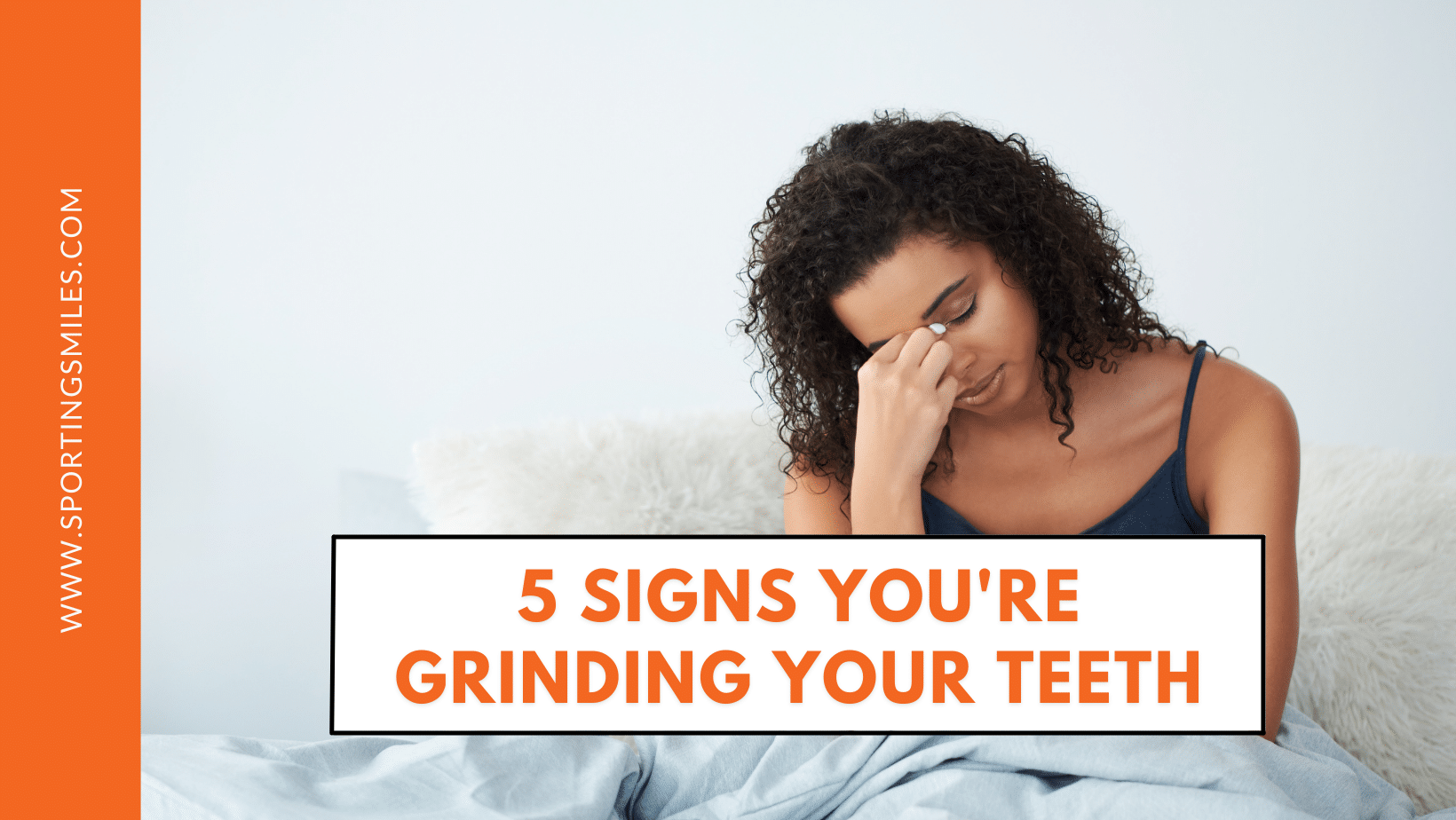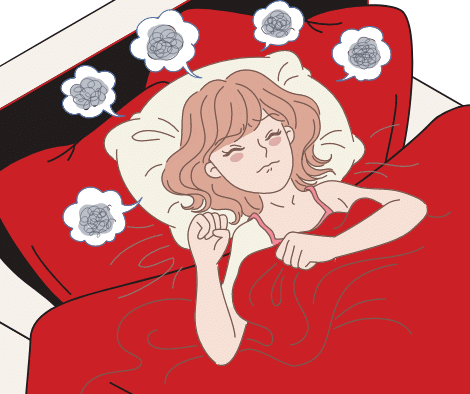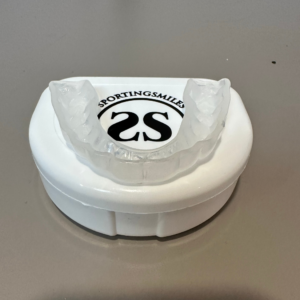
The following article has been medically reviewed for factual accuracies and current orthodontic practices by Dr. Febin Mary George, DDS.
Being aware of an unconscious habit can be difficult at the best of times. That gets even harder if it’s a habit that you do in your sleep. That’s why we’ve put together five teeth grinding symptoms that you may be experiencing. Studies have shown that up to 25% of all people do some teeth grinding at night. Approximately 8% of adults experience regular teeth grinding, or ‘bruxism’. Teeth grinding normally only happens at night and most people have no idea that they grind their teeth until their dentist tells them, or if they start to experience jaw pain in the morning. There are several telltale teeth grinding signs. Read on to learn more!

If you live with a partner and they hear grinding sounds coming from your side of the bed at night, it’s possible that you are grinding your teeth in your sleep.
If you regularly wake up with a tense or painful jaw, often accompanied by headaches, then you may be clenching or grinding your teeth.
The Flexible Super Hard Night Guard is the strongest night guard available and is our No. 1 seller. Protect your mouth from severe teeth grinding and clenching with this teeth guard. Order online and take the impression at home saving hundreds over going to the dentist. Impression kit included. Free Shipping in the United States.…
If you regularly visit your dentist then they will likely pick up on this before you notice it. However, if you feel like you are noticing a flattening of your teeth or wake up with a crack in your teeth that was not there the night before, you should ask your dentist for a diagnosis.
The friction of regular teeth grinding can sometimes result in sores or blisters on the inside of your mouth. Mouth sores can be related to a number of issues, but if accompanied by one of the other symptoms then you might be grinding your teeth.
Grinding teeth can result in wearing away the enamel that protects your teeth from decay and changes in temperature. This can cause your teeth to become sensitive, to hot or cold foods more difficult. Again, tooth sensitivity can be related to a wide variety of dental issues but, in conjunction with other symptoms, it may be indicative of teeth grinding.
If you feel like you are experiencing bruxism then the first thing you should do is visit your dentist. They can evaluate you further and give you a clear diagnosis. They will also be able to tell you what severity level of teeth grinding you are experiencing. This is an important factor in determining which type of night guard is right for you. Some materials are better suited to heavy grinding. The other will be less intrusive but only strong enough to withstand milder grinding.

If your dentist sees evidence of nighttime teeth grinding, the first place to start is with a nightguard, such as the soft teeth grinding guard from SportingSmiles. These guards provide a cushion between your teeth, stopping the damage and reducing symptoms.
The first step in preventing teeth grinding damage is to get a professionally fitted tooth grinding guard. A night guard is designed to take the force of grinding or clenching instead of damaging your teeth and causing the symptoms listed above. The guard protects the teeth and will normally solve most people’s issues.
You can choose to go to your dentist for this custom night guard but they may not be able to fit you into their schedule for at least three months. Aside from that, you might need to pay new patient fees, receive X-Rays, and the visit will come with a huge bill! SportingSmiles has been crafting night guards since 2009 and is half the cost of the dentist. With six different night guards to choose from, SportingSmiles will have one no matter what teeth grinding symptoms you have.